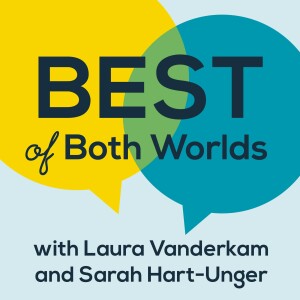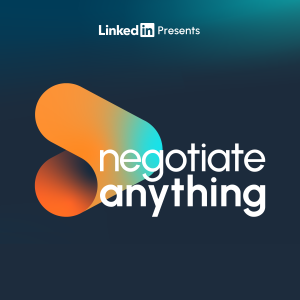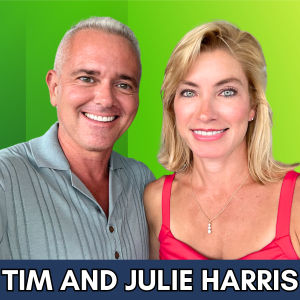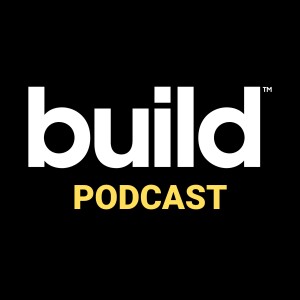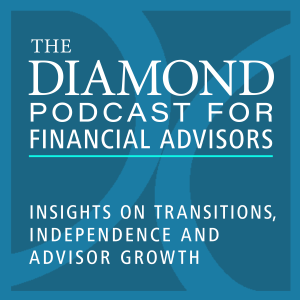

Yoni Tammam: Creating value and building a career through a unique skill set
Throughout his career, Yoni Tammam has cultivated a unique skill set and strategically applied it to drive success for both teams and clients. In this episode of Career Footprints, Yoni traces his journey from undergrad business major, to tax associate at Reed Smith, to vice president at the tax insurance practice at CAC Group where he advises clients on managing tax risks in high-stakes transactions. Yoni focuses his practice on using tax insurance to accrete value to his clients. In the episode, he offers practical advice for law firm associates – especially those aspiring to move in to business roles – on making the most of their law firm experiences, building a marketable skill set, and asking the right questions when exploring their first business opportunity after Big Law.
----more----
Transcript:
Intro: Welcome to the Reed Smith podcast, Career Footprints. In each episode of Career Footprints, we'll ask our guest, a Reed Smith alum, to share their career story, how their time at Reed Smith set them up for success, and their advice for early career lawyers. Our goal is to surface insights from the careers of these inspiring professionals that will help you find professional success, however you define that.
Lauren: Greetings, everyone, and welcome to another episode of Reed Smith's alumni Career Footprints podcast. This is your host, Lauren Hakala, Reed Smith's Global Director of Learning and Development. Today, I'm excited to be speaking with Reed Smith alum Yoni Tammam. A lawyer by training, Yoni currently works in a business role, serving as vice president, tax and insurance practice at insurance broker and advisory firm CAC Group. He started his career as a tax associate in Reed Smith's Global Corporate Group, based right here in our New York office, where I also sit. Yoni, welcome. How are you today?
Yoni: I’m doing well. Thanks for having me on, Lauren.
Lauren: Thanks for being here. So if it's okay with you, we'll jump right in because there's a lot to cover.
Yoni: That sounds great.
Lauren: Okay, so you currently work in a specialized area of the transaction insurance industry. How would you describe what you do and the product you sell to like a total layperson?
Yoni: Sure. So I work as a tax insurance broker for a company called CAC Group. CAC Group itself is a leading insurance broker and advisor that provides expertise and placement capabilities across the spectrum of insurance. Within CAC Group, I work for one of the entities called CAC Specialty, which is an industry-leading specialty broker dealing a lot with transactional insurance. And the subset that I deal with is tax insurance. So at a high level, what I do is help clients, again, protect against tax risk in high stakes transactions. The product is now actually evolving such that you don't need a transaction for tax insurance anymore. You can use it in a whole bunch of different variety of ways. And basically what it does is it protects a position that a taxpayer is putting on a tax return. So for example, if a company is undergoing a merger and they structure it to be a tax-free merger, and there's a question as to whether or not the analysis will be respected by the IRS, me and my team will work to help our clients come up with a insurance solution to mitigate that risk and allocate that risk amongst the transaction parties.
Lauren: Got it. So you mentioned that your customers are companies engaged in transactions. How do you spend most of your days with them?
Yoni: Sure. So tax insurance really comes down to high level three buckets. There's our tax credit insurance, there's M&A transactional insurance, and then there's call it ordinary course of business, which is really helping companies protect their balance sheet when taking on certain tax positions in the ordinary course of business with internal restructurings and things like that. Most of my time is spent talking with clients and or underwriters, our trading partners, and or their advisors. What we're doing initially is we're getting the intake and figuring out what the issue is that's either coming from the client's lawyers or coming from the client themselves. Discussing the risk with them, getting an understanding of it, using our tax technical expertise from our prior careers to really understand what the issue is and whether or not it's insurable and what that would look like. From there, internally, we're talking about how to best present the risk to the tax insurance market, put together that risk profile, submit a request for terms to the underwriters. And then we're on the phone with the underwriters talking about the risk and coming up with terms and negotiating what that would look like for our client. We're dealing with it in a lot of different ways, coming up with clever structures or just general down the middle tax and understanding of what the transaction parties are looking to accomplish by virtue of obtaining an insurance policy.
Lauren: So it sounds like it sounds like a having been a tax lawyer must be super useful for what you're doing now. And the work you're doing is similar in some ways to to the work of a tax lawyer. So I'm wondering, what do you like the most about now being on kind of the business side of things?
Yoni: Yeah, what I love most about my role is it allows me to wear multiple hats. I'm not just practicing law in the traditional sense anymore, but I still get to dive into legal and tax analysis and lean on that tax technical background. I'm still sharpening my skills, still taking the tax CLEs and those types of things. And I really get to enjoy that because the way I describe it sometimes is I'm in the solution-oriented world of tax law. And really what we're doing is helping clients find a solution for an issue that could be impacting their business, preventing them from taking the next step in their business, or otherwise just increasing their stakeholder and shareholder value. So really, I get to be entrepreneurial in a sense that I'm getting to deal with clients, go out and source and build a book of business. I get to be working in a tax technical space, utilizing the years of tax law practice and my specialized education. And also, I get to deal with people a lot and not just documents. And so it really is really rewarding for me to be able to help a client with their business and come up with solutions similar to how I would do it as a lawyer.
Lauren: Got it. No, it sounds like you're using a lot of different aspects of your background. So on that note, I want to rewind to the very beginning of your career, because I noticed that you studied business undergrad, and that's a really valuable degree. So I'm wondering, when you graduated, what made you decide to go on to law school?
Yoni: Yeah, I had always had an idea that I wanted to go to law school from a young age, you know, probably for the traditional reasons that kids growing up think they want to be a lawyer. I was good at arguing. I liked negotiating, those types of things. But I also knew I really liked being on the transaction side of things. And I felt I was a little bit more analytical in that sense than just the number crunching on some of the finance stuff. And quite candidly, I graduated from college right after the 2008 recession. So going to law school for a few years while the job market sorted itself out was also not a bad option. And I was very fortunate enough to have a full scholarship to law school so that it really just became kind of an easy decision for me. I was able to come back to school in New York City and really come back, be closer to my family and get to explore a whole bunch of different areas. When you're dealing as a business major, sometimes you're kind of stuck with finance or you're in one marketing or you're in one particular area. Law, I think, kind of gave me the ability to see all the different areas of business and finance, but from a different analytical standpoint and kind of looking at the building blocks of them and not just the numbers.
Lauren: That's really interesting. So how did you then decide to concentrate in tax law and then go on to get your LLM and taxation?
Yoni: Yeah. So tax, if you had told me I was going to be a tax lawyer when I started law school, I probably would have called you crazy. Having said that, it ended up being that perfect mix for me of where I thought business and law mixed. I was able to kind of understand my tax law classes. From the early onset because of my finance major, where there was certain financial and accounting type of concepts put into tax law that kind of made sense to me. It was the first time I had a study group that I was the leader of the study group because I seemed to know the most. So it just kind of came naturally to me in that sense. And similar to what I was talking about before, in terms of breadth of industry, I said, everyone pays taxes and nobody wants to pay taxes. So there's a lot of value in being the person who can help people with those taxes. It does not matter the industry you're in. And frankly, I kind of had always thought that I wanted to go into sports and be in that industry. And during law school, I actually worked for the Minnesota Vikings at one point. And one of the pieces of career advice that somebody gave me was, go be an industry expert. Go be a technical expert on something and your skillset will be marketable no matter what the industry is. And tax seemed to me the place where I could best build that skillset. I had a phenomenal professors in law school, Laura Cunningham, who's one of the masterminds of the tax world. And she really gave me a lot of really strong, good career advice and really kind of guided me towards the tax industry. And to me, it's the perfect combination of analytical rigor and real world impact.
Lauren: So I think you kind of foreshadowed what my next question was going to be by mentioning your industry focus and your interest in sports. And I want to ask, how did you come to take a job here at Reed Smith?
Yoni: Yeah, so I kind of always knew I wanted to go in the big law to get that experience working on those high-end transactions and sophisticated issues. And when I was looking at the landscape of big law firms, one of the ones that stuck out to me was Reed Smith, particularly because it did have a sports and entertainment group. But also, when I applied, it was small tax practice. And I felt that getting that one-on-one level with the partners was really going to help me advance my career and my skill set. So, you know, Reed Smith gave me an opportunity to work on complex transactions across a broad range of industries, even one in particular that I was interested in. But the exposure to all of the different types of work that I was doing in tax, you know, kind of made me realize that really, it's about the tax that I really enjoyed the industry itself that could go here to here and whatnot. I mean, glitz and glamour can fade, but ultimately what you're doing on a day-to-day basis, if you find that it is challenging and thought-provoking and you're working with great people, that to me was what I was looking for. And I found great people with a great practice and a lot of ability to hone my skills.
Lauren: Yeah, that was a lot of self-awareness for a law student to think about, you know, having had this great mentor, your professor in law school and then coming to a place where it's a smaller atmosphere and a smaller practice. So that was really, really good thinking.
Yoni: Yeah. And, you know, mentorship, as I've said in our conversations before, is really something I very much focus on and really take pride in not just looking for it, but also providing it. And Breed Smith had a culture of mentorship as well, which I thought was really important. And I really hit it off with, you know, the tax practice leaders at the time. And I think it, you know, one thing I will generally advise young lawyers or just young people entering the workforce is the people really do matter. It's not just something that we say, because at the end of the day, you're spending a lot of time with them. And I found from my first interview with the tax practice at Reed Smith that it was going to be a good fit.
Lauren: So tell us a little bit more about the work you did at Reed Smith and how it sort of further shaped you as a professional.
Yoni: Yeah. So I focused on transactional tax work at Reed Smith. I worked with James Tandler, Angela Ciavarella, Mike Myers, and a handful of other people from the firm doing a lot of M&A, fund formation, cross-border structuring. Did some work in the energy and infrastructure space, but really got to see a whole slew of different issues. But predominantly working on private equity M&A was where I would say I spent most of my time, but got to that broad exposure, which is part of what I was looking for.
Lauren: Got it. And then it sounded like you were having a good time at Reed Smith. You practiced here and then at two other large law firms in New York City. When did you decide to move on from big law practice?
Yoni: Yeah. So I always liked, my time in big law. I really enjoyed the people. I enjoyed the work. I found it to be challenging. But in the end, I just never saw myself as a partner at a law firm. As far as what I was seeing, it just wasn't necessarily where I saw my career going. And I knew I wanted to be entrepreneurial. I knew I really liked tax. I really did want to stay involved in transactions because I really enjoyed that intensity, the pace and everything like that. And so I decided to explore the transactional insurance space after talking with a friend of mine who had made a similar career move. I had seen how the rep and warranty insurance product had taken off since when I first started practicing. And I thought tax insurance was at a similar space to where rep and warranty insurance was where I started practicing with a lot of room to grow and the ability to be entrepreneurial while also still being in that technical side and leaning on the tax knowledge. So it gave me a chance to still be involved with these deals and transactions that I'm very familiar with, but also to figure out a different way of how to monetize that skill set.
Lauren: Yeah, no, I'm definitely hearing that opportunity to build a full new business line and to be a part of putting that together. I'm someone who transitioned from working at a law firm to working at a brand new legal know-how product. And I just remember how satisfying that feeling was to make something new. So that resonates. So I want to ask you more about that. So for associates who are listening to this now and think they might want to do something entrepreneurial, but also business focused, what advice would you give them about trying to find a role like that?
Yoni: So I think my general piece of advice is even before starting to find that role is find your skill set. You know, find the thing that sets you apart, figure out what it is that you're good at and how you can make that your competitive advantage, because that's the thing that's going to carry you. You know, I realized I was very good at tax, but I was also good at understanding the issues and communicating with people. And I really felt that those skill sets of taking, I focused on taking technical tax and simplifying it. And that's a large part of what it is I do with this. And that to me was very important in a lot of ways. I think, you need to build that foundation and then you're able to look for opportunity. Because I think a lot of times people just go, I just want to go in-house or I don't want to work in big law anymore. Or similar to me, they just didn't think they ever wanted to be a partner, but wanted the law firm experience. So it's about maximizing that law firm experience because your skills are going to be the thing that carries you into success in no matter what your next job is, be it something more entrepreneurial, business focused, like what I'm doing in the transactional insurance space, or more of a traditional in-house role as counsel for a firm or something along those lines. So I think that is the first thing that you need to do. Then the next thing is learn how businesses make decision, how they're sold and how value is created and where you would be fitting into that chain within your organization or the organization that you're looking to join. That is really where you got to be thinking about it because it's very easy to just say, oh, a real estate company is looking for an in-house lawyer. I practice real estate law. That makes sense to me. Well, what are they looking for you to do as counsel? Because it might not be as much of a driving value or business generating role, or it could be something different. But having that understanding of what the company does and where you would fit in is super important.
Lauren: Yeah, no, it sounds like once again, you were very thoughtful and very self-aware because you started from this idea of what's my value proposition? What are the skills that I'm good at? And then you mapped that on to roles and thought about how you would be leveraged in your new role.
Yoni: Yeah, exactly. That's exactly right. And, the other little bit of advice I would say is make sure you're ready. You sometimes are going to lose the partner parachute, as I say, or you might not be fully understanding or accepting of what your role now is within your organization because you are used to being the main revenue generator at your old firm. You might just still need more time before where you're ready to make that kind of transition. I think it's super important for people to make sure that they are ready not just to leave big law. It's not just the you only get one bite at the apple argument, but are you ready for this new role?
Lauren: Yeah. No, I remember when I was a young lawyer being told you only leave big law once, right, for the first time. And it's an important steps. So I think that's good advice to make sure that you are ready to be to be where the buck stops, right? Because there's not necessarily going to be a partner who you can ask if you're, you know, unsure.
Yoni: Yeah, yeah. And again, it's, it's very important to just know what it is, how your function is advancing your organization. Because if you don't fully understand that, it's sometimes harder for lawyers to transition into that role when they're very much used to here's the work i do the work and that's how we make money it's sometimes tougher to figure out where your role within an organization is when the work you're doing isn't necessarily generating the revenue,
Lauren: Got it. So sounds like some some good questions to ask as you're exploring roles and and deciding what's right for you.
Yoni: Yeah. Yeah. How, you know, how does the company make money? How do the lawyers help the company make money? Is the is the mission statement of the company to make money? Right. It could be some sort of nonprofit or something else like that. But either way, what is the organization's goals and how do you fit into that and how does your role fit into that, I think is super important and something people need to think about heavily before making the jump.
Lauren: Okay, so I have to let you go soon. But last question, as someone who practiced law for eight years at a firm and then moved in-house, what advice would you give to an associate about what to make the most of while they're still in big law? What is not to be missed, even if you know you don't want to be a partner and will be moving on?
Yoni: You know, I said it in the beginning, and I still believe it. It's that training. That training and that skill set is something that you do not get elsewhere. We joke that sometimes it's learning by osmosis, but it really is. It shows you how to carry yourself. You show how to interact with clients, interact with your coworkers and colleagues. Law firms are an extremely professional and intellectual environment that you get to be involved in, particularly when you're dealing with it at the level of a Reed Smith and the other big law. Take advantage of that opportunity being in the room with people like that. Learn from them on the technical side and on the soft skills side. Learn how to write concise emails. Learn how to manage your time accordingly. You're dealing with a lot of different projects at a lot of different times. And as we all know, life only gets more complicated as you get older. So learning those skills and the time management and learning from those who have come before you, I think is one of the most important things that you can do with time and big law. And particularly at a place like Reed Smith that really does focus on that mentorship and giving you those resources to excel and take your technical skills to that next level. So that is my full response. My cheeky response is summer associate lunches. You don't get them elsewhere.
Lauren: Well, I think that that is a great note to end on. Really excellent advice for folks at the law firm, regardless of what their sort of career goals are. Let's make the most of that training the mentorship when you're around so many professionals who are there to work with you.
Yoni: That will carry you no matter what you do. It can be law adjacent, can be not law adjacent, but how to think through a situation and how to interact with your clients or other stakeholders, that is something that you can't really replicate elsewhere.
Lauren: Well, Yoni, thank you so much for talking to us. Your role is super interesting and I think we all enjoyed hearing about it and also your advice and how you got there. And thank you so much to our listeners for joining us for another episode of Reed Smith's alumni Career Footprints podcast. Thanks so much for listening, and we hope you tune in to future episodes.
Outro: Career Footprints is a Reed Smith production. Our producers are Ali McCardell and Shannon Ryan. You can find our podcast on podcast streaming platforms, reedsmith.com, and our social media accounts at Reed Smith LLP. To learn more about Reed Smith's alumni network, or if you are an alum of the firm who wants to share your career story, contact Laura Karmatz, Reed Smith's Global Senior Director of Alumni Relations at alumni@reedsmith.com.
Disclaimer: This podcast is provided for educational purposes. It does not constitute legal advice and is not intended to establish an attorney-client relationship, nor is it intended to suggest or establish standards of care applicable to particular lawyers in any given situation. Prior results do not guarantee a similar outcome. Any views, opinions, or comments made by any external guest speaker are not to be attributed.
All rights reserved.
Transcript is auto-generated.
More Episodes
All Episodes>>You may also like
Create Your Podcast In Minutes
- Full-featured podcast site
- Unlimited storage and bandwidth
- Comprehensive podcast stats
- Distribute to Apple Podcasts, Spotify, and more
- Make money with your podcast


